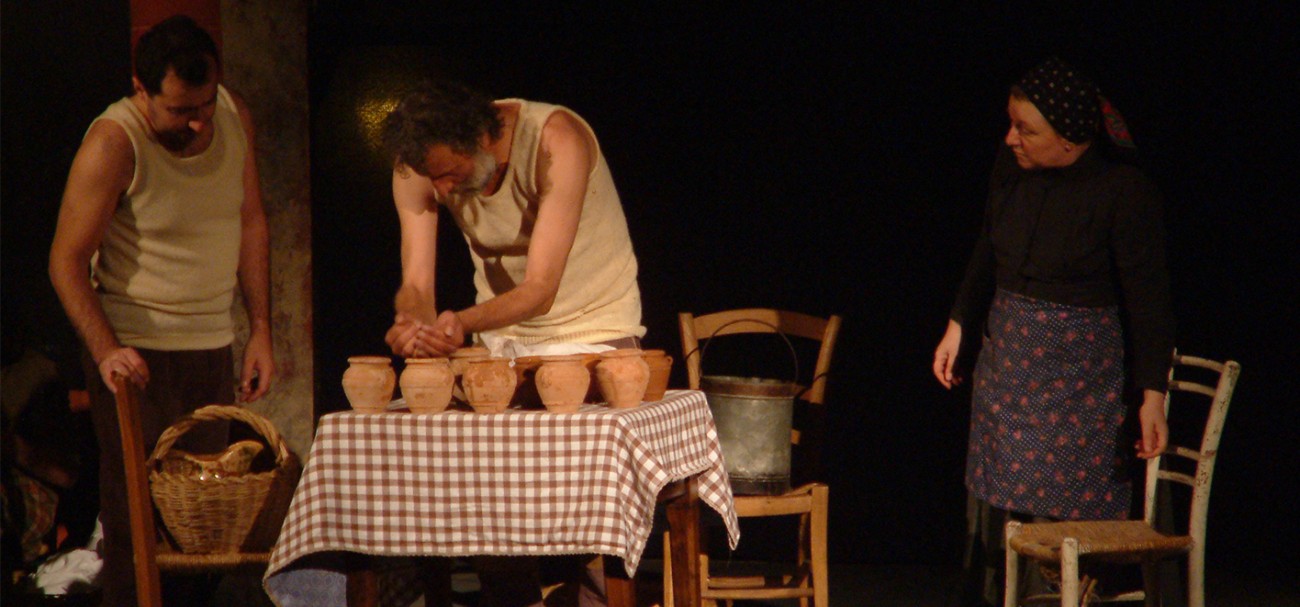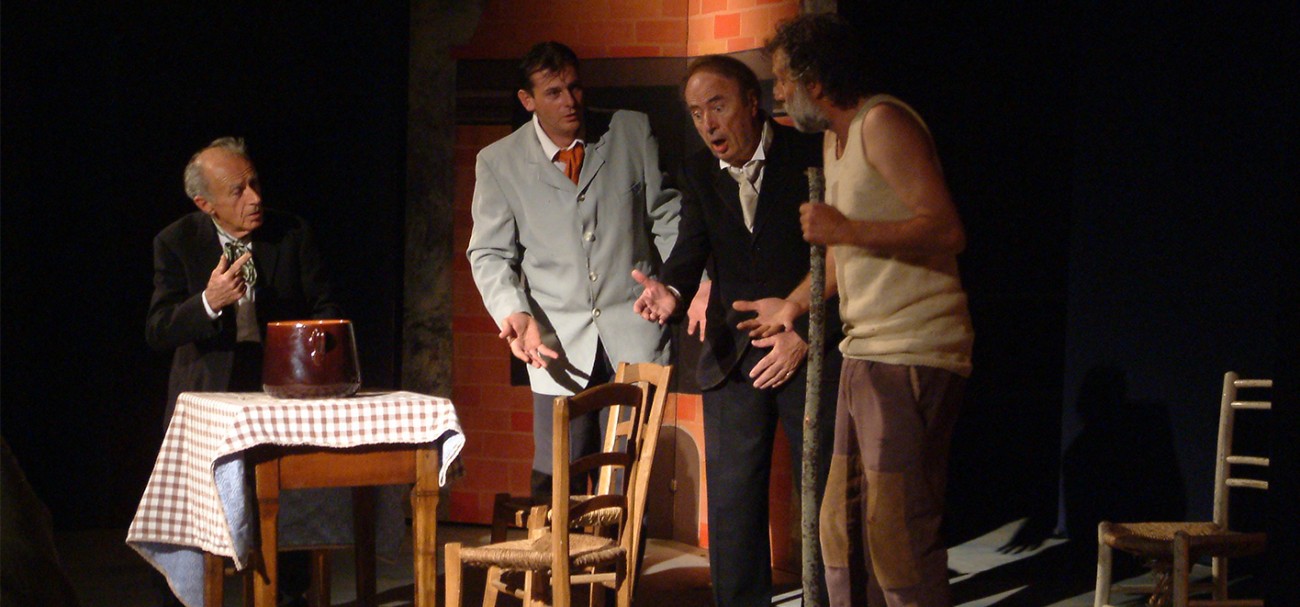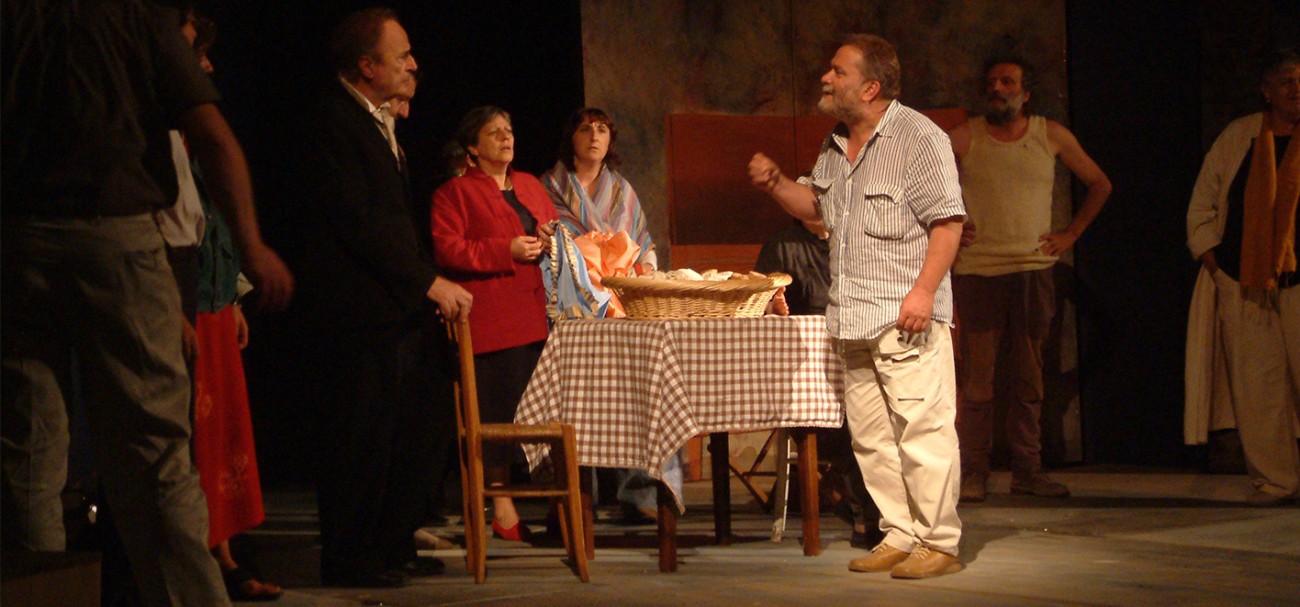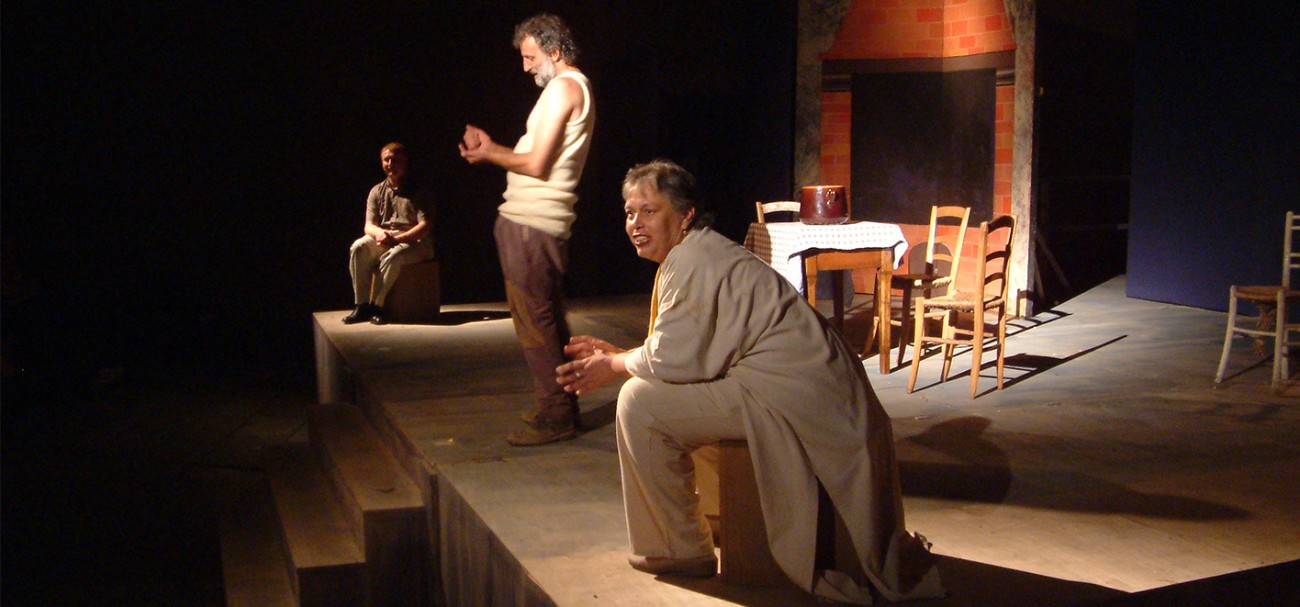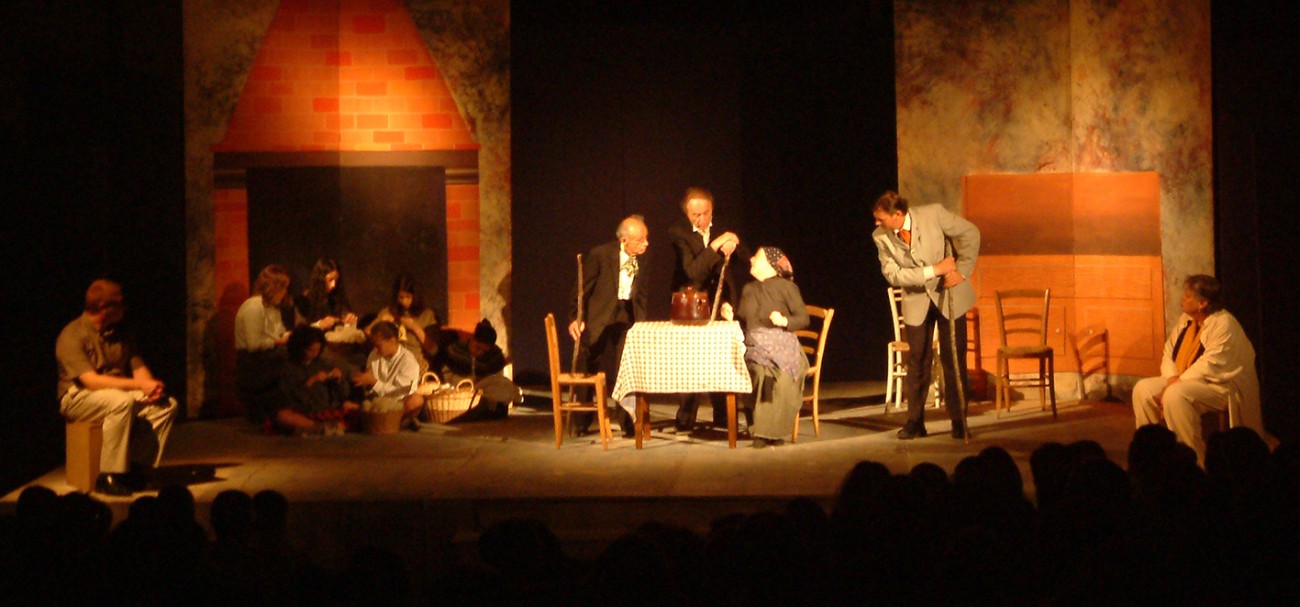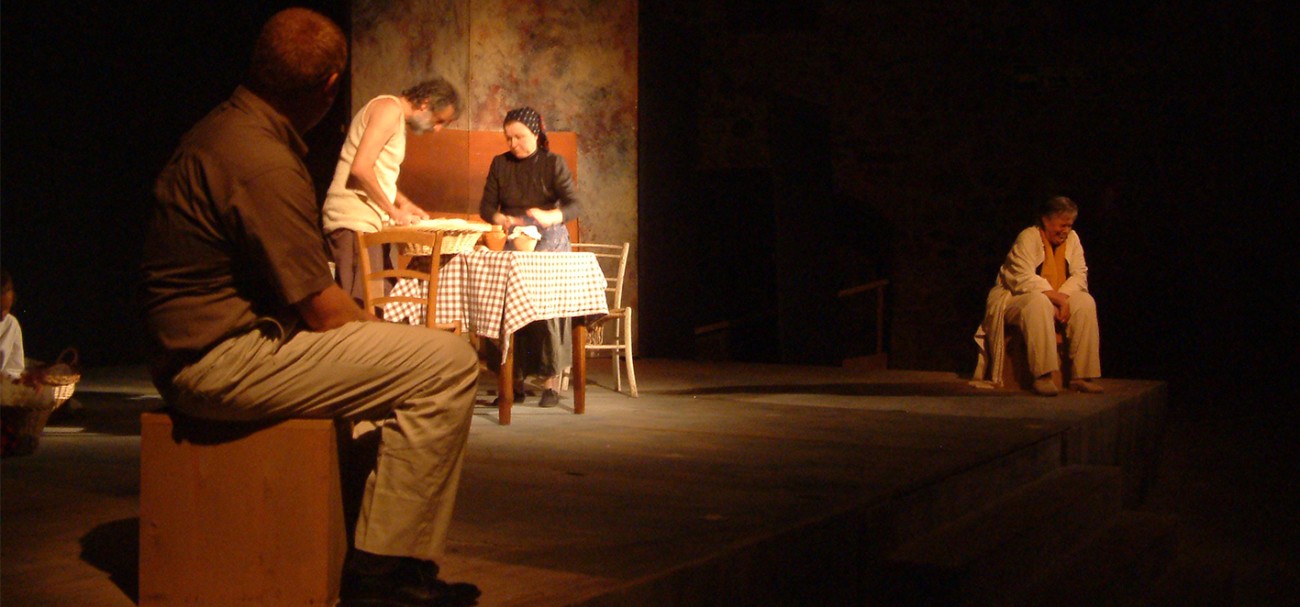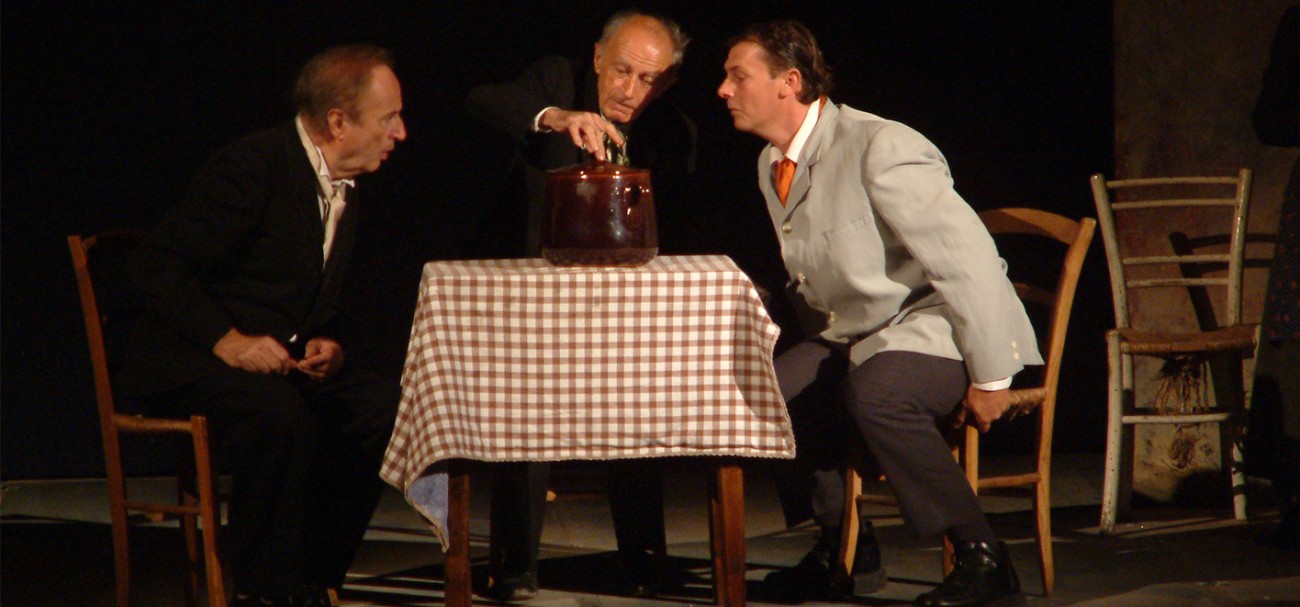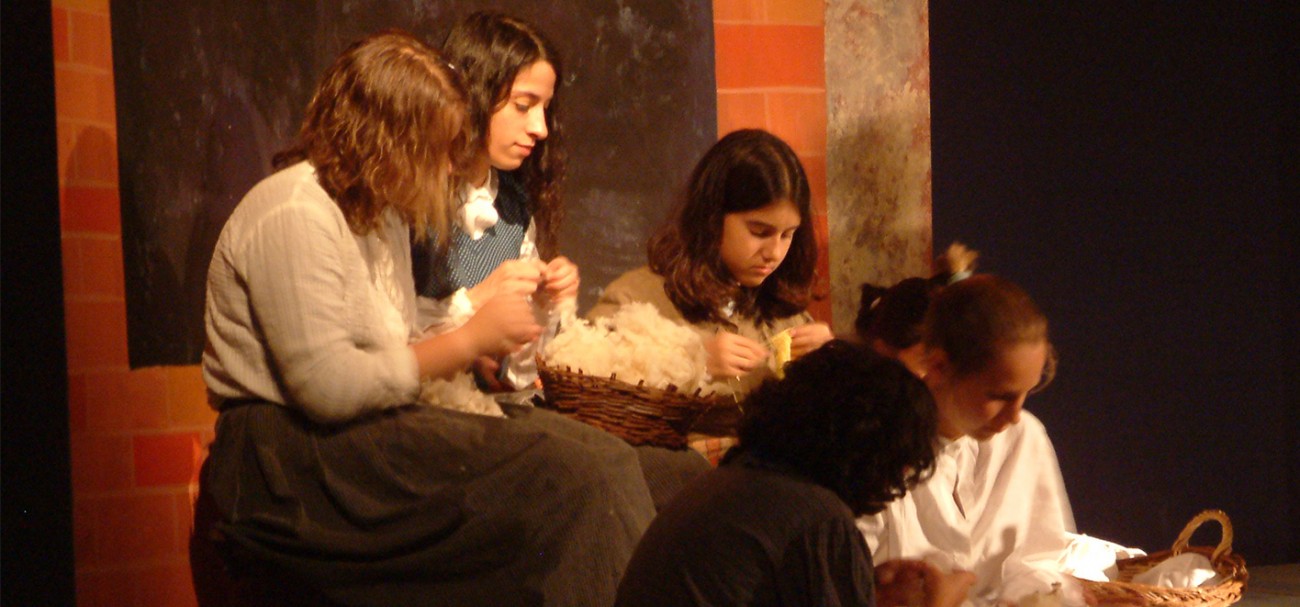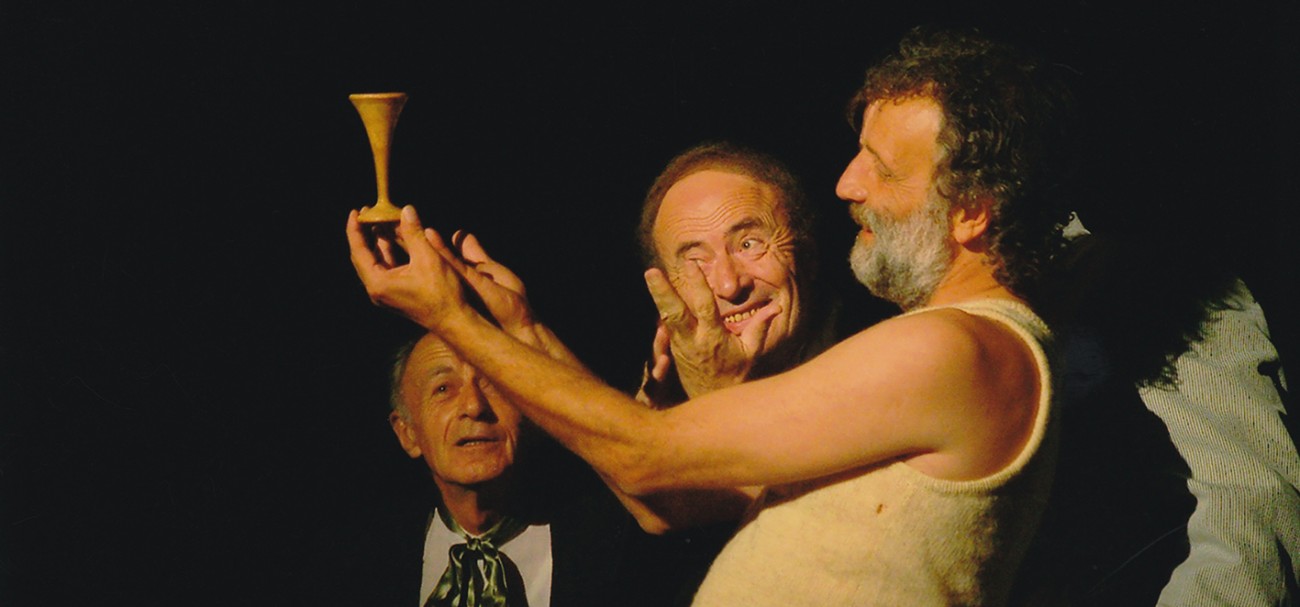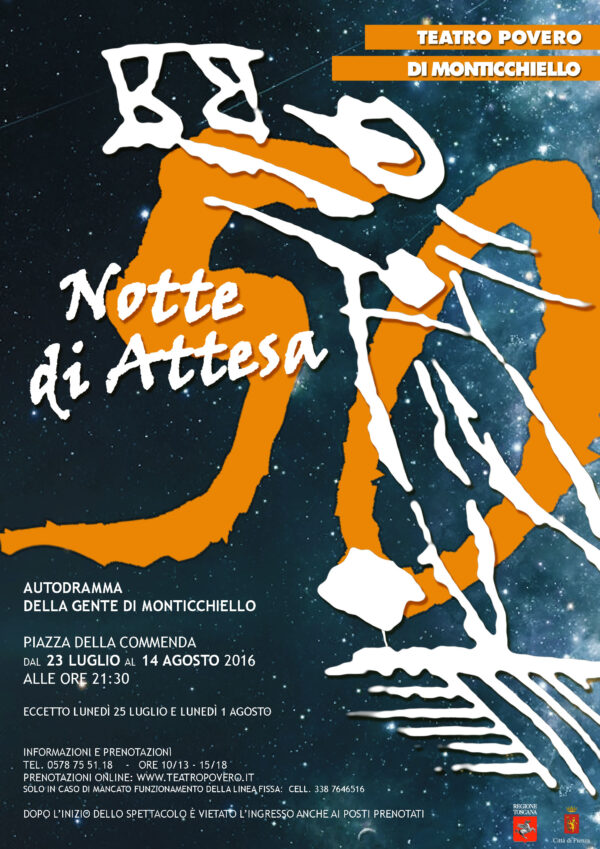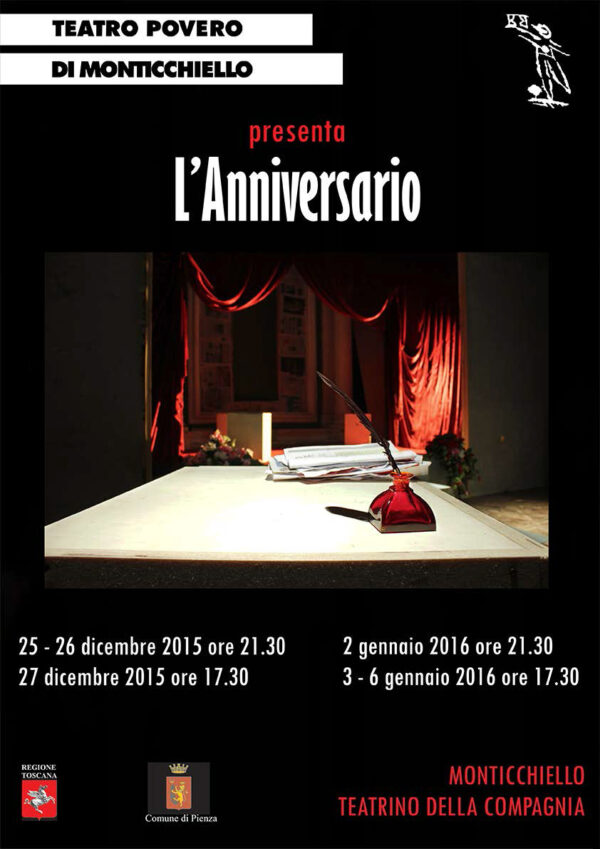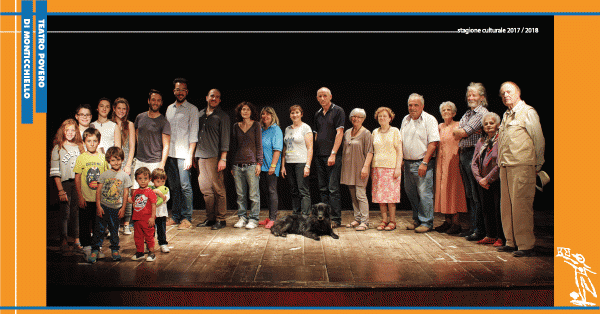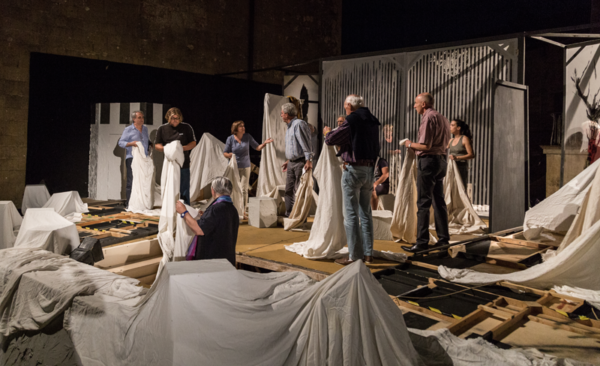The ‘fairy-tale’ in this autodramma is the old folk story about the tricky deceitful peasant Campriano, which had already been used once before in 1999. This time the fable was enacted with a series of interruptions, which raised issues relevant to the village of Monticchiello in present times, and to the Teatro Povero itself.
Actors in the Campriano story frequently broke out of character, and appeared as ordinary villagers of Monticchiello with problems of their own. They spoke of the community’s difficulties in maintaining jobs and opportunities for young people; and for the first time their contributions involved direct quotations from previous autodrammi, either about these contemporary problems or about the disruption caused by past political struggles and the collapse of sharecropping. Newcomers to the village—a resident who came from northern Italy, and an economic migrant from Tunisia—gave their own contrasting reactions to rural Tuscany. Meanwhile, the Campriano story reached its climax despite interruptions, an exercise in irreverent subversive farce.
The overriding question (as initially in 1994, ten years ago) was whether the Teatro Povero’s continuing habit of portraying and reflecting memories of peasant civilization was now irrelevant for a modern audience. Could this sort of show go on for much longer? But those memories were then re-visited, and shown still to be rooted in the minds of many Monticchiellesi. What was the alternative to enacting ‘Campriano’? ‘Fifty-five minutes of silence?’

